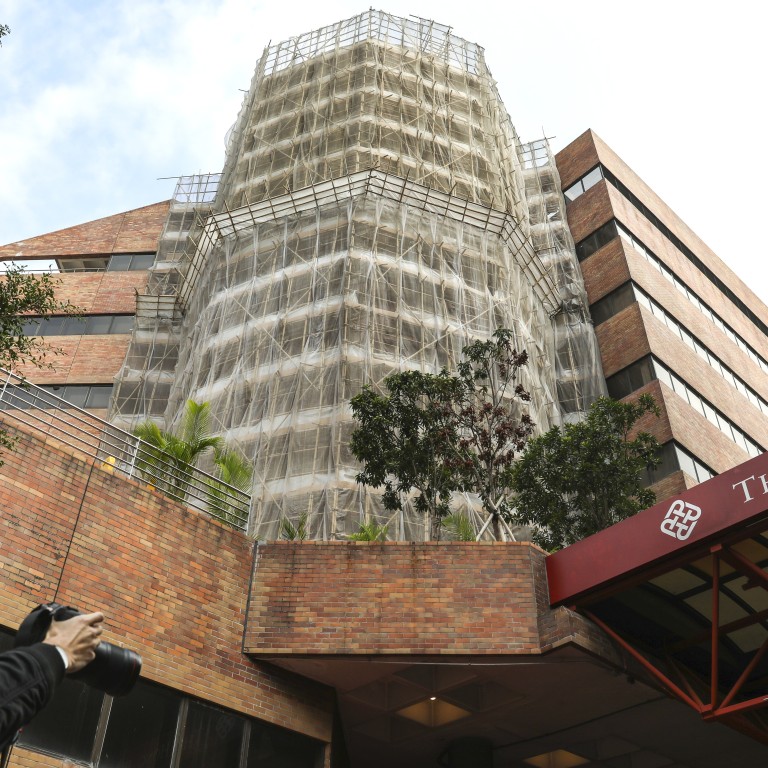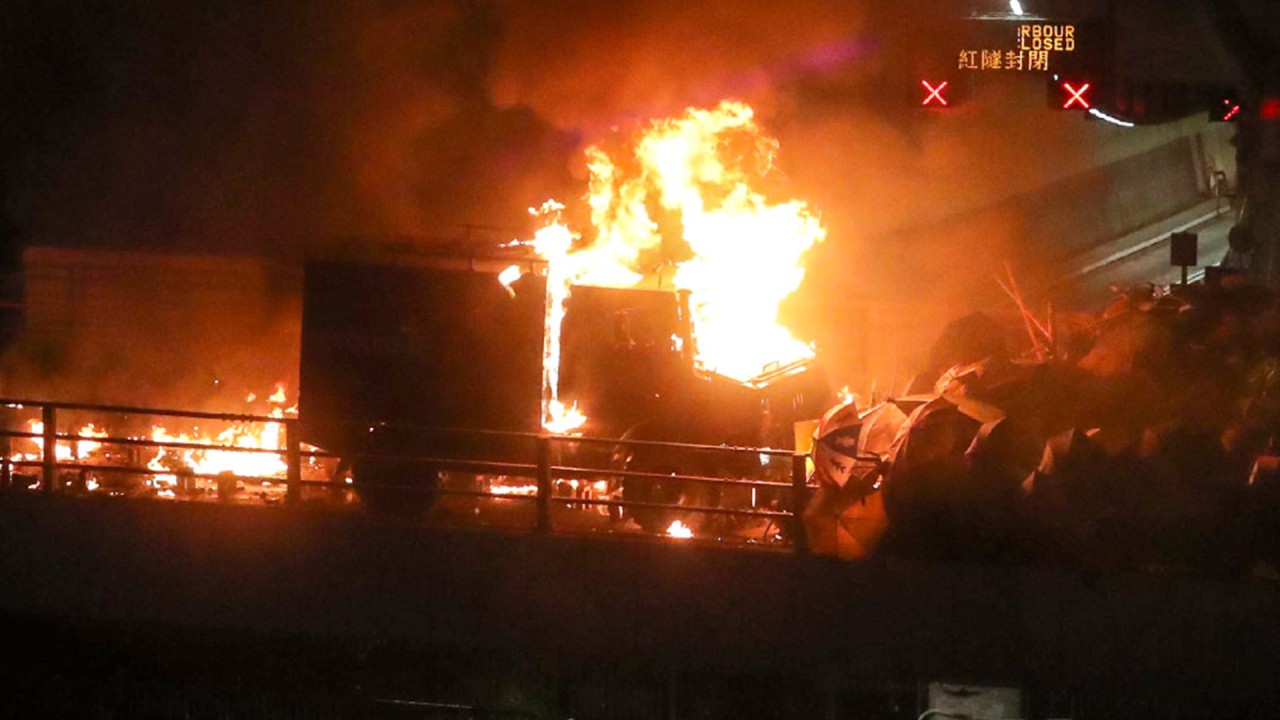
National security law won’t affect overseas students much in Hong Kong’s universities, PolyU deputy president says
- Universities’ good reputations remain a draw; legislation expected to have ‘limited impact’ at PolyU
- But Hong Kong institution records sharp decline in applications for postgraduate courses, with mainlanders staying away
“Universities in Hong Kong have a good reputation and do well in international rankings. Many students from mainland China and overseas are still interested in studying here,” he said in an interview with the Post on Friday.
He also expected the law to have only a limited impact on PolyU’s academic and research activities.

09:09
The saga of the siege at Hong Kong's PolyU
Wai, a PolyU veteran of more than two decades, revealed that the university received about 20,000 applications for taught postgraduate programmes this year, a steep 28 per cent decline from last year.
The city’s universities have seen challenging times, with several campuses affected by last year’s anti-government protests, and the pandemic causing classes to be suspended for more than four months this year.
More than 1,100 were arrested over the incident, of which only 46 were students of the university.

The law, tailor-made for the city by Beijing, also requires schools and universities to promote national security education to raise public awareness, leaving critics worried it could curb freedom of speech and academic freedom.
Wai said PolyU had not received any government guidelines on the new law, but its academic council would be meeting soon to discuss the matter.
If there are requirements under the new legislation, we would of course have to abide by the law
He believed, however, that the new law would have only a limited impact on the university’s academic and research activities, which were focused mainly on subjects such as engineering and applied sciences.
While some overseas students might have concerns about choosing Hong Kong, Wai felt the impact from those who stayed away would be “marginal” because international students came not only from the US and Europe, but also South Asia and Africa.
“I think the new law might even boost the confidence of some parents from mainland China to send their children to Hong Kong for taught and research postgraduate programmes,” he added.
Most Hong Kong universities rise in QS global rankings despite disruptions
This year’s sharp decline in applications for taught postgraduate programmes at PolyU was a stark contrast from last year, when the numbers rose by about 26 per cent from the year before.
The drop in mainland Chinese applicants was noticeable, and Wai said it could be because of ongoing political instability in Hong Kong. Last year’s protests had a strong anti-Beijing aspect and some mainland students decided to return home.

Most of the damage caused by protesters’ occupation of PolyU last November has been repaired, with strengthened security measures put in place.
Wai said there was also a decline in local students applying for taught postgraduate programmes, which could be the result of the economic downturn caused by the pandemic.
Scores of Chinese students flee Hong Kong over fears they will be attacked
Applications for bachelor’s programmes by non-local students were down nearly 10 per cent by June. But Wai said the numbers could change as mainland Chinese university entrance exams were only taking place this month after being delayed by the pandemic.
At PolyU, Wai said, classes of fewer than 50 would be conducted face-to-face in the new term, with social distancing in place. Larger classes will be taught online.
Wai said PolyU would arrange off-campus accommodation for students who need to be quarantined.

